India News
US envoy Eric Garcetti praises India, says he is privileged to see the country’s developmental journey
The US envoy was speaking to the media while attending the Impact & Innovation: 25 Years of Making Development a Ground Reality event in Delhi.
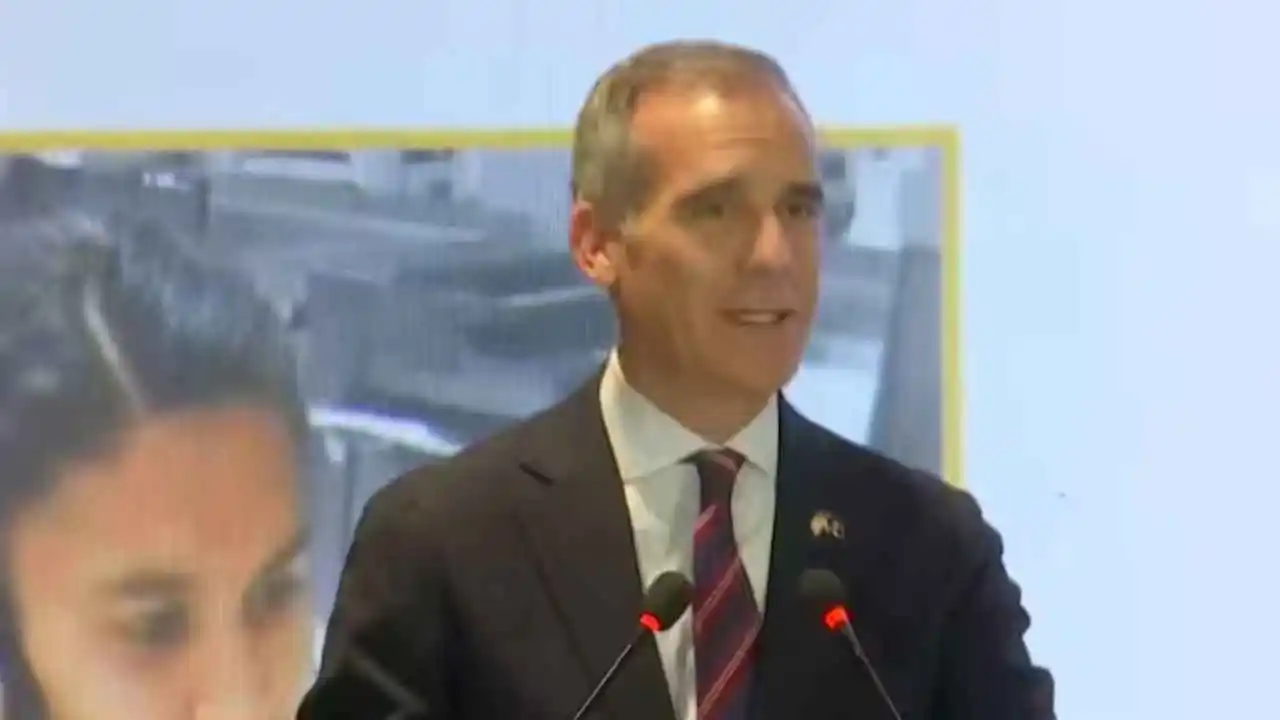
Ambassador of the United States to India, Eric Garcetti on Wednesday underscored the importance of India saying one should come to India to see and feel the future. The US envoy was speaking to the media while attending the Impact & Innovation: 25 Years of Making Development a Ground Reality event in Delhi.
He said if one wants to see the future then he should come to India. He said if one wants to work on the future then he should come to India. He said he had the great privilege of being able to do that every single day as the leader of the US Mission.
Addressing the gathering, Garcetti said they don’t come here to teach and preach. They come here to listen and learn. And when he had the privilege to work alongside India, whether it’s in the digital domain or in the climate actions that US takes, they know that the work that is being done is urgent, and its success must benefit every girl, woman, and marginalised community in India and around the world.
Earlier Garcetti had highlighted the significance of India-US partnership and said that US President Joe Biden told him that India is the most important country in the world. Garcetti added he loved Joe Biden. He said he had deep friendship with the US President for many many years.
Garcetti thought Joe Biden must have said this to every ambassador in the world. France is the most important country. Mexico is the most important country. But he wasn’t lying. He meant it because he heard him say it directly in the Oval Office to the Prime Minister; this is the most consequential relationship. US National Security Advisor Jake Sullivan also commended the US’s relationship with India and said the partnership has gone to new heights.
2024 Lok Sabha Elections
Brij Bhushan Sharan Singh’s son Karan gets BJP Lok Sabha ticket from Kaiserganj
Karan Singh Bhushan was on December 13, 1990. He competed at the national level in double trap shooting. He has a daughter and a son. Karan Singh Bhushan completed his Bachelor of Business Administration (BBA) and law from Dr Ram Manohar Lohia Avadh University.
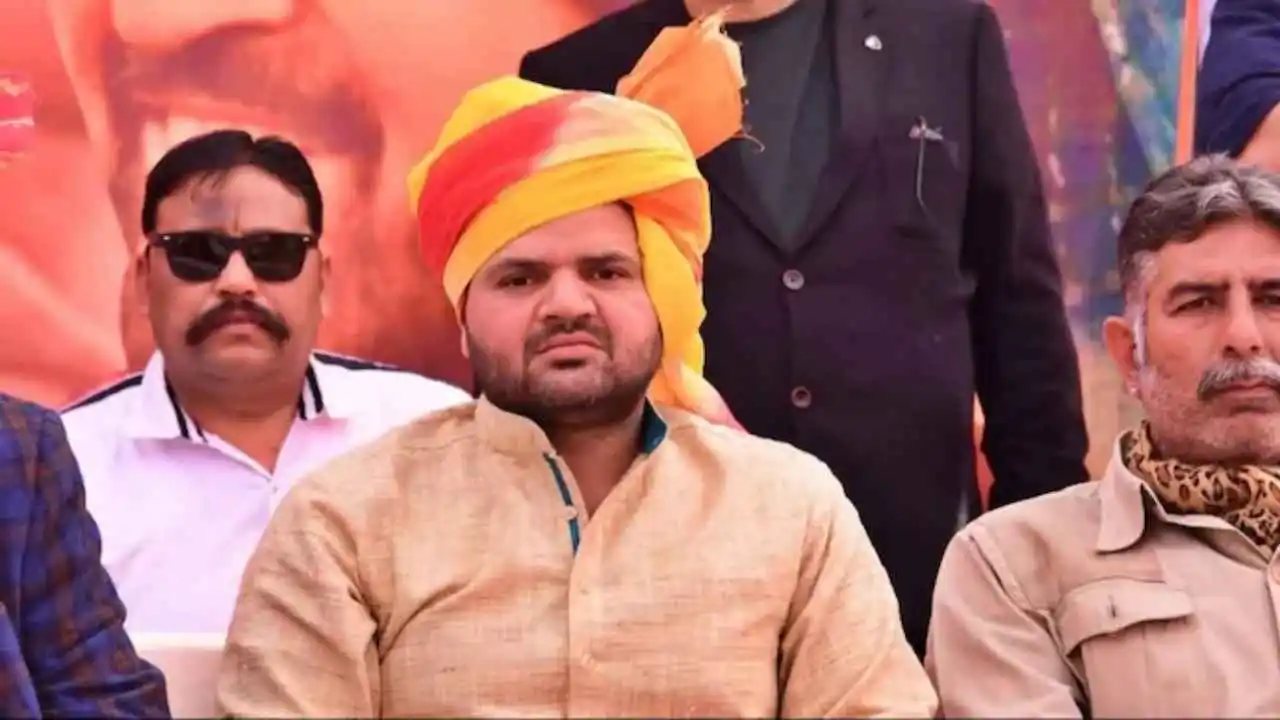
BJP on Thursday dropped sitting Kaiserganj MP Brij Bhushan Sharan Singh, who has been accused of sexual harassment by women wrestlers and gave a ticket to his son, Karan Bhushan Singh. Karan Bhushan, Brij Bhushan’s younger son, is the president of the Uttar Pradesh Wrestling Association. He is also the head of The Cooperative Bank in Nawabganj in Gonda district.
Karan Singh Bhushan was on December 13, 1990. He competed at the national level in double trap shooting. He has a daughter and a son. Karan Singh Bhushan completed his Bachelor of Business Administration (BBA) and law from Dr Ram Manohar Lohia Avadh University.
He has also holds a diploma in business management from Australia. Karan Bhushan Singh is presently the president of the Uttar Pradesh wrestling association. Earlier he was the senior vice president of the UP wrestling association. Elections will be take place in Kaiserganj in the 5th phase of Lok Sabha elections on May 20. Karan Bhushan Singh is likely to file his nomination from Kaiserganj on May 3.
There has been a lot of speculation and suspense on Brij Bhushan Sharan seat this time as the former Wrestling Federation of India (WFI) chief, who is also a 6-term MP, had been accused of sexual harassment by some of the India’s top wrestlers.
Many female wrestlers, including medallists, protested against the BJP leader and demanded his arrest over the charges of sexual harassment while he was serving the position of the WFI president. Wrestlers, including Sakshi Malik and Bajrang Punia, sat on a protest at the Jantar Mantar and demanded action against the Kaiseganj MP.
The Delhi Police later registered a case against Brij Bhushan Sharan Singh under Sections 354 (assault or criminal force to woman with intent to outrage her modesty), 354D (stalking), 354A (sexual harassment) and 506 (criminal intimidation) of the IPC, on June 15, 2023. But he was granted bail on July 20, 2023.
2024 Lok Sabha Elections
Rahul Gandhi criticises BJP, PM Modi for JD(S) alliance, seeking votes for a mass rapist
Rahul Gandhi was addressing an election rally in Karnataka’s Shivmogga where he said that PM Modi is seeking votes for a mass rapist. The Congress leader added that Narendra Modi, from a packed stage, supports that rapist and said: if the people of Karnataka vote for this rapist, it will help him.
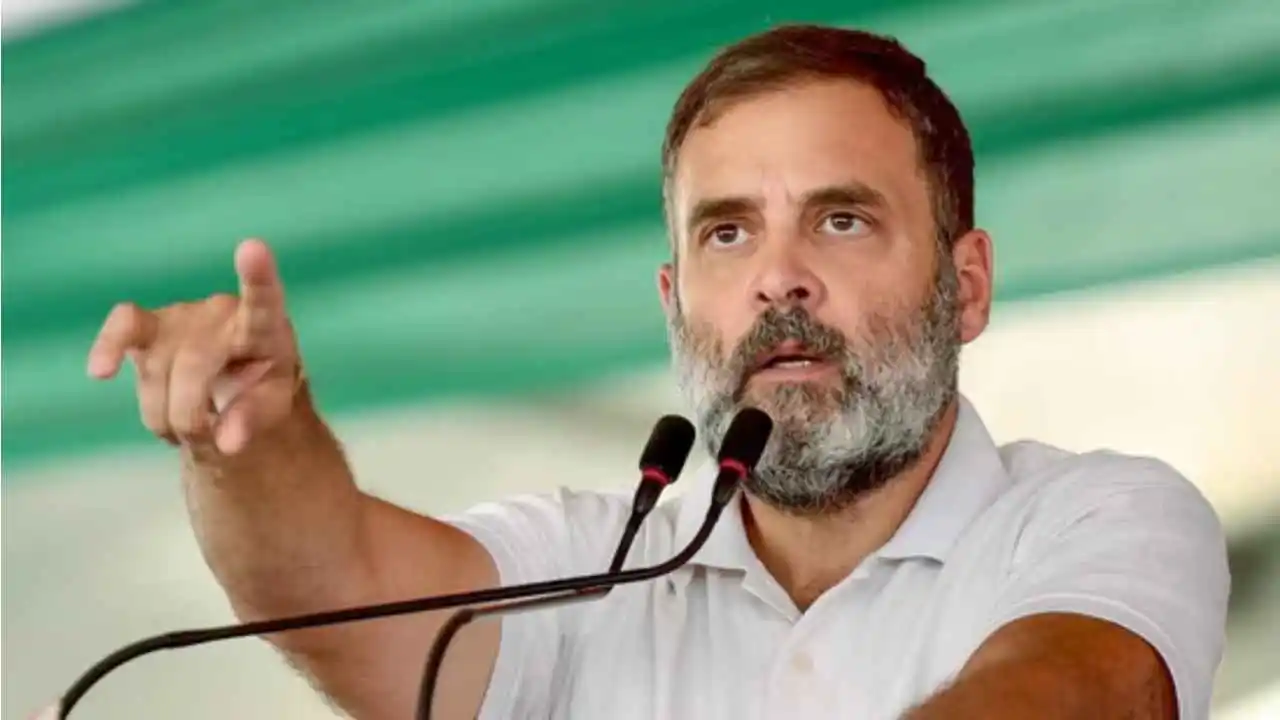
Congress leader Rahul Gandhi on Thursday said that the sex video case involving Prajwal Revanna, the member of Parliament from Karnataka’s Hassan, is not just a mere sex scandal but of mass rape. He also criticised the BJP and Prime Minister Narendra Modi for the JD(S) and seeking votes for a mass rapist.
Rahul Gandhi was addressing an election rally in Karnataka’s Shivmogga where he said that PM Modi is seeking votes for a mass rapist. Prajwal Revanna raped a number of women and made their sex videos. The Congress leader added that Narendra Modi, from a packed stage, supports that rapist and said: if the people of Karnataka vote for this rapist, it will help him. Gandhi accused PM Modi of helping Revanna (former PM HD Deve Gowda’s grandson) escape from India.
Gandhi said even when Prajwal Revanna raped a number of women, the prime minister did not stop him from going to Germany. He said Prime Minister Narendra Modi has all the machinery, yet he allowed the mass rapist to flee to Germany. He took a sarcastic dig at PM Modi and said this is Modi’s guarantee. The Congress leader asserted that whether it’s a corrupt leader or a mass rapist, the BJP will always protect him.
Prajwal Revanna, the sitting MP from Hassan and the grandson of former PM HD Deve Gowda, has been accused of being in purported sex tapes. A number of pen drives allegedly contain his sexual assault videos which were circulated in Hassan, the Lok Sabha constituency from where he is the BJP-JD (S) candidate.
Most of the sex videos were recorded by Prajwal Revanna in his office and house. Initially, the Gowda family and the BJP termed the tapes as being doctored to tarnish the image of the family in elections but later, HD Kumaraswamy distanced himself from the tapes and said the police is investigating the matter.
India News
SIT issues lookout notice for Prajwal Revanna in sex video case
A police officer, who is part of the SIT, confirmed to the media that a lookout circular has been issued at all the immigration points to detain Prajwal Revanna, said to be in Germany, as soon as he enters the country.
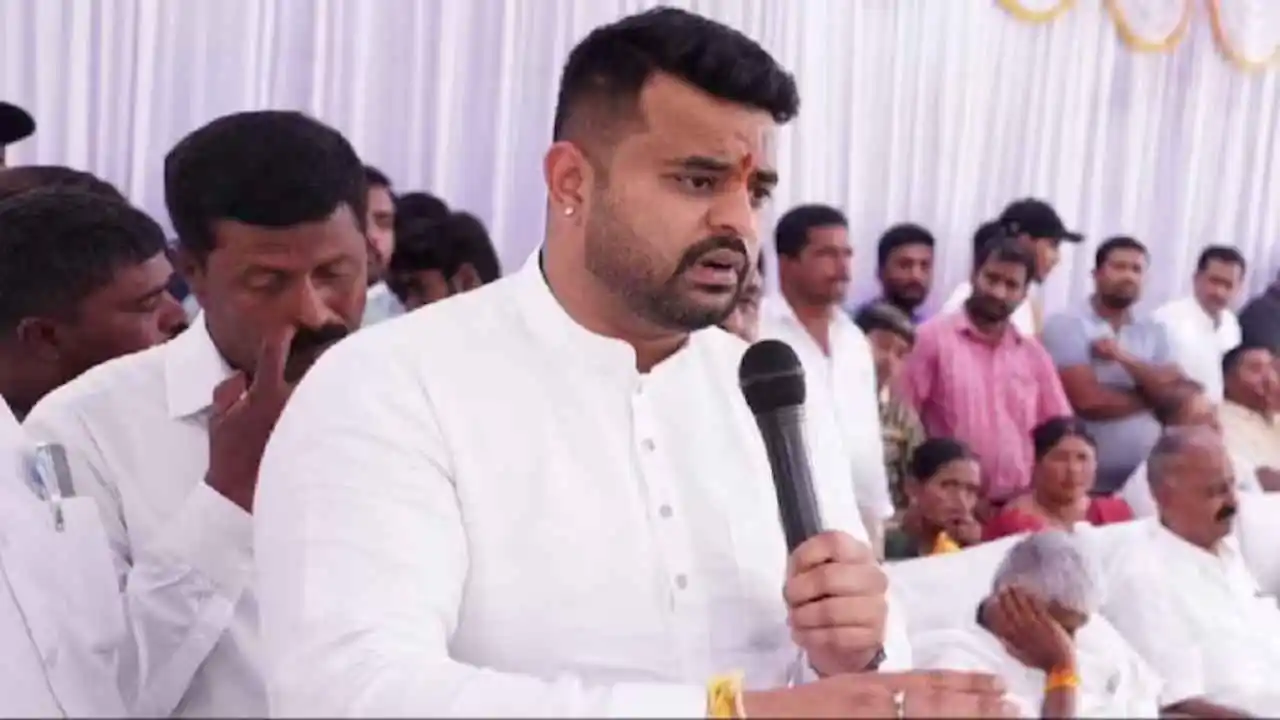
The Special Investigation Team (SIT), probing the sex tapes case involving JD(S) Lok Sabha candidate Prajwal Revanna, on Thursday issued a lookout notice against him. The notice was issued at all immigration points all over the world. The development comes as Revanna allegedly fled to Frankfurt, Germany on April 26, as a huge cache of explicit videos and photographs showing him indulging in the sexual abuse of several women went viral on social media platforms.
Prajwal Revanna is the grandson of former prime minister and JD(S) patriarch HD Deve Gowda and son of former minister HD Revanna, is seeking re-election from Hassan on the JD(S) ticket. The JD(S) MP faces sexual assault charges and has sought 7 days to appear before the Special Investigation Team probing the matter.
Prajwal Revanna and his father, DD Revanna have been issued notices to appear before the SIT for questioning. The Hassan MP informed the SIT team that he is currently outside Bengaluru. A case has been registered against both HD Revanna and his son Prajwal Revanna at Holenarasipura based on a complaint lodged by their former cook and relative for sexually harassing her.
She alleged that Prajwal Revanna made video calls to her daughter and spoke in an objectionable manner, which forced her to block his phone number. The FIR was referred to the SIT, led by BK Singh, Additional Director-General of Police, Criminal Investigation Department, formed to probe the alleged sex scandal involving Prajwal Revanna, after many explicit videos were circulated on social media.
The National Commission for Women (NCW) has demanded a comprehensive report within 3 days from the Karnataka Police regarding allegations of sexual misconduct against Prajwal Revanna. The NCW expressed grave concern over the circulation of a number of obscene videos on social media, which showed Prajwal Revanna sexually assaulting number of women.
-

 Cricket news10 hours ago
Cricket news10 hours agoIPL 2024: Jonny Bairstow, Rilee Rossouw guide Punjab Kings to 7-wicket victory over Chennai Super Kings
-
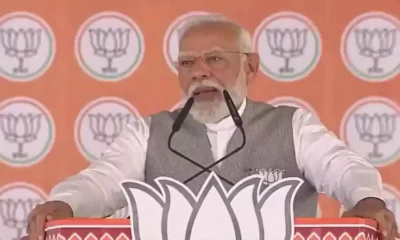
 2024 Lok Sabha Elections7 hours ago
2024 Lok Sabha Elections7 hours agoPM Modi takes a dig at Rahul Gandhi, says Pakistan wants him as Prime Minister
-
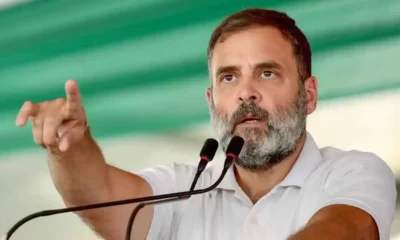
 2024 Lok Sabha Elections4 hours ago
2024 Lok Sabha Elections4 hours agoRahul Gandhi criticises BJP, PM Modi for JD(S) alliance, seeking votes for a mass rapist
-
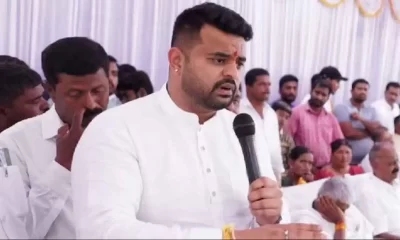
 India News6 hours ago
India News6 hours agoSIT issues lookout notice for Prajwal Revanna in sex video case
-
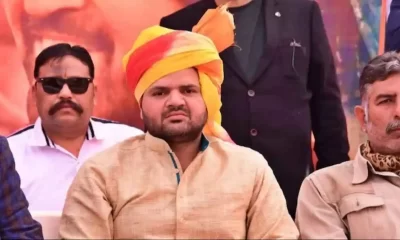
 2024 Lok Sabha Elections3 hours ago
2024 Lok Sabha Elections3 hours agoBrij Bhushan Sharan Singh’s son Karan gets BJP Lok Sabha ticket from Kaiserganj
-
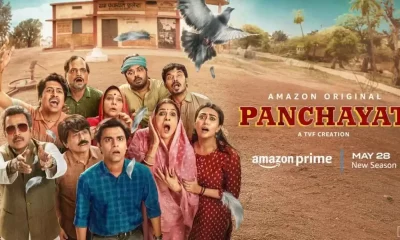
 Entertainment2 hours ago
Entertainment2 hours agoPanchayat Season 3 to premiere on Amazon Prime video on May 28, 2024
-

 Cricket news8 hours ago
Cricket news8 hours agoBollywood star Amitabh Bachchan motivates Indian cricket team for ICC Men’s T20 World Cup 2024, video goes viral






